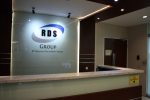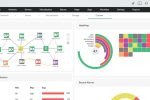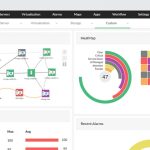McDonald’s Hong Kong is no stranger to digital innovation. It was among the first restaurant chains in Hong Kong to let guests order for delivery or in-store dining via self-service kiosks, a comprehensive mobile app, or traditional counter service.
The chain offered coupons through its mobile app—promoting new or seasonal items, as well as standard menu items and value combos—but early on that process was “rather manual and time-consuming,” says Keith Chan, McDonald’s Hong Kong chief financial officer and technology officer, who leads the company’s digital transformation initiatives. “We challenged ourselves to leapfrog to a more customer-centric, automated process based on data science.”
Big data challenge
With 245 restaurants in Hong Kong, serving more than a million customers each day, McDonald’s Hong Kong had plenty of data to make more-informed coupon-promotion decisions. The challenge was to organize that data in one central place rather than in myriad spreadsheets; analyze it to make predictions rather than just look at past performance; and then present the data in a way so that company stakeholders could “capture meaningful and actionable insights in a timely manner,” Chan says.
The company is now laying the digital foundation. As of April, it’s pulling data from its central point-of-sale system into its Oracle Autonomous Data Warehouse, running on Oracle Cloud Infrastructure (OCI). For starters, it’s using “unsupervised” machine learning—letting the model discover patterns on its own—from Oracle Machine Learning that is built into the cloud-based data warehouse. This enables McDonald’s Hong Kong to analyze data and recommend the relevant coupon types to different customers based on the recency, frequency, and monetary value of customers’ purchases.
“We can now be more surgical in coupon planning for our targeted segments,” Chan says. “Decisions are all data-driven, and hence can be very objective, analytical, and effective.”
McDonald’s Hong Kong tapped Oracle Consulting to build an intuitive UI for all of the campaign data, using the Oracle Application Express (APEX) low-code development platform that comes with Oracle Autonomous Data Warehouse. The Oracle APEX front end makes it easier for the company’s business insights, digital marketing, and finance teams to see and manipulate that data for reporting and planning purposes.
The company estimates that the Oracle technologies already have halved the time for the various teams to plan and execute the weekly coupon campaign. “The effective and agile use of data can lead to what we call speed to insight,” Chan says.
Chan offers his peers at other companies three pieces of advice: one, understand that advanced technologies such as machine learning are there to support human, professional judgment, not to replace it; two, ensure that the insights gleaned from the data being collected are truly actionable—that is, you can use them to improve business results; three, since AI and machine learning are still at the infancy stage, constantly adjust your underlying data methodologies and assumptions as you progress.
“Machine learning can help unleash the potential value of data and drive business growth,” Chan says. “It is such an exciting journey of transformation that we can’t afford to miss.”




















